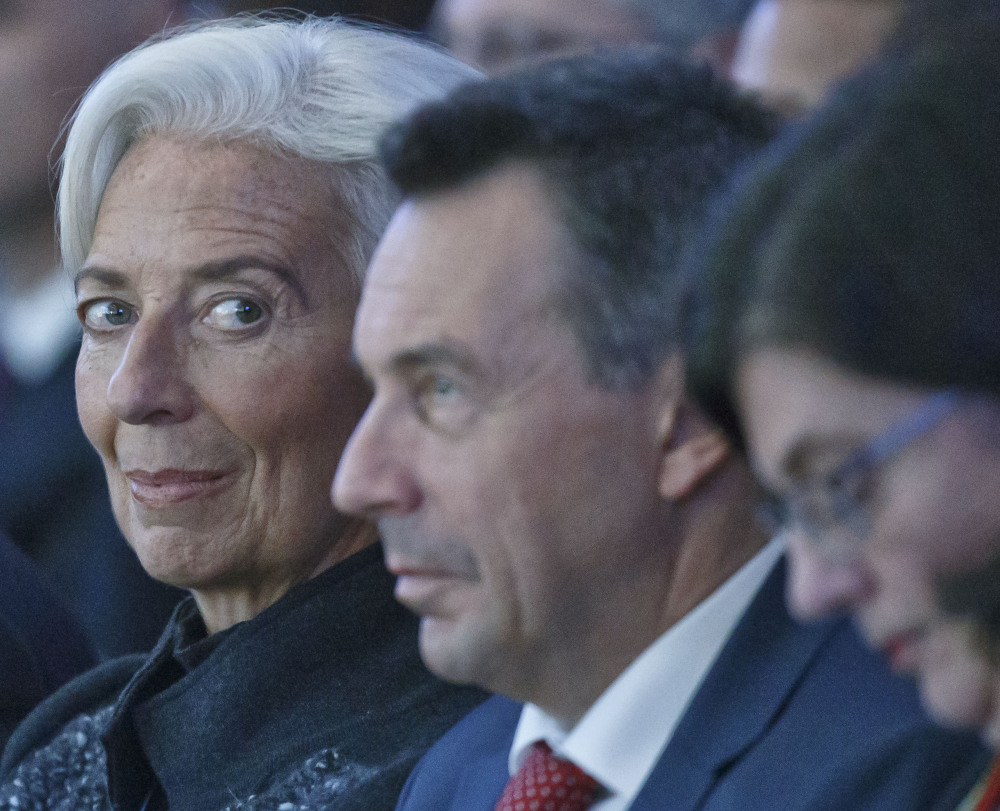Mideast turmoil, China and cheap oil are among the reasons for pessimism at a Swiss ski resort.
DAVOS, Switzerland — In the couple of hours before Morgan Stanley chief James Gorman sat down Wednesday to speak on a panel in Davos, Switzerland, he had lost some $600,000 on the value of his shares in the bank.
As the world’s richest business leaders and public figures kicked off the World Economic Forum’s annual meeting in the Swiss ski resort, a renewed plunge in stock markets and global oil prices clouded the air with anxiety. Gorman is not alone – already this year trillions of dollars have been wiped off the value of shares around the world.
Some participants voiced a high degree of concern over the global economy, saying the recent turbulence in financial markets – which saw the Dow plunge over 500 points on Wednesday – was akin to a “meltdown.” Others sought to describe it as a natural adjustment. Not many were upbeat.
“The new normal is a low-growth world,” said Martin Sorrell, chairman of U.K.-based advertising giant WPP.
Uncertainty over the slowdown in China, the plunge in energy costs and the potential disruption of new technologies dominated discussion at the 45-year-old annual gathering, which tries to bring together leaders from every field and has become a key networking event.
Pope Francis sought to remind the elite gathering about the world’s poor, calling for new business models that create dignified work for all while protecting the environment. A message from the pope read out Wednesday told the crowd they cannot be fully human or happy if they ignore poverty, and fail to realize that their own actions are causing injustice.
Sorrell worried that companies are not confident enough to invest in new projects that might create growth and jobs. Instead, they increasingly prefer to reward shareholders with dividend payments and share buybacks.
And consumers, Sorrell said, remain wary – nearly eight years after the global financial crisis saw the collapse of many banking groups and triggered the deepest recession since World War II.
That wariness is why consumers don’t appear to be spending the windfall they earn from lower oil prices. Money saved at the pump could be spent elsewhere, but that doesn’t appear to be happening now.
Tensions in the Middle East are also a concern. Iran’s foreign minister denounced new U.S. sanctions over Iran’s ballistic missile program and warned that warmer diplomatic ties with Washington remain “far away” despite a landmark nuclear deal.
Send questions/comments to the editors.



Success. Please wait for the page to reload. If the page does not reload within 5 seconds, please refresh the page.
Enter your email and password to access comments.
Hi, to comment on stories you must . This profile is in addition to your subscription and website login.
Already have a commenting profile? .
Invalid username/password.
Please check your email to confirm and complete your registration.
Only subscribers are eligible to post comments. Please subscribe or login first for digital access. Here’s why.
Use the form below to reset your password. When you've submitted your account email, we will send an email with a reset code.